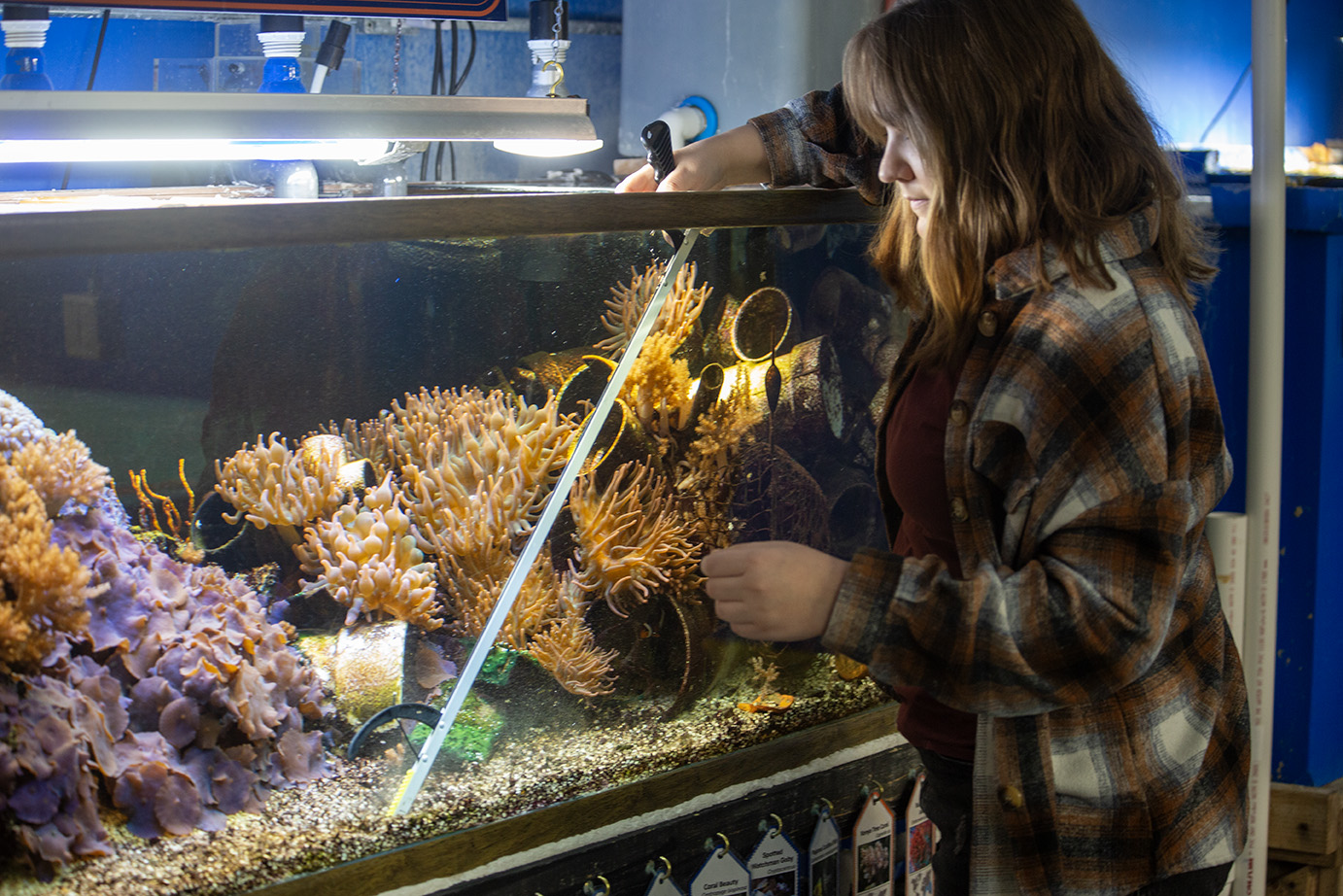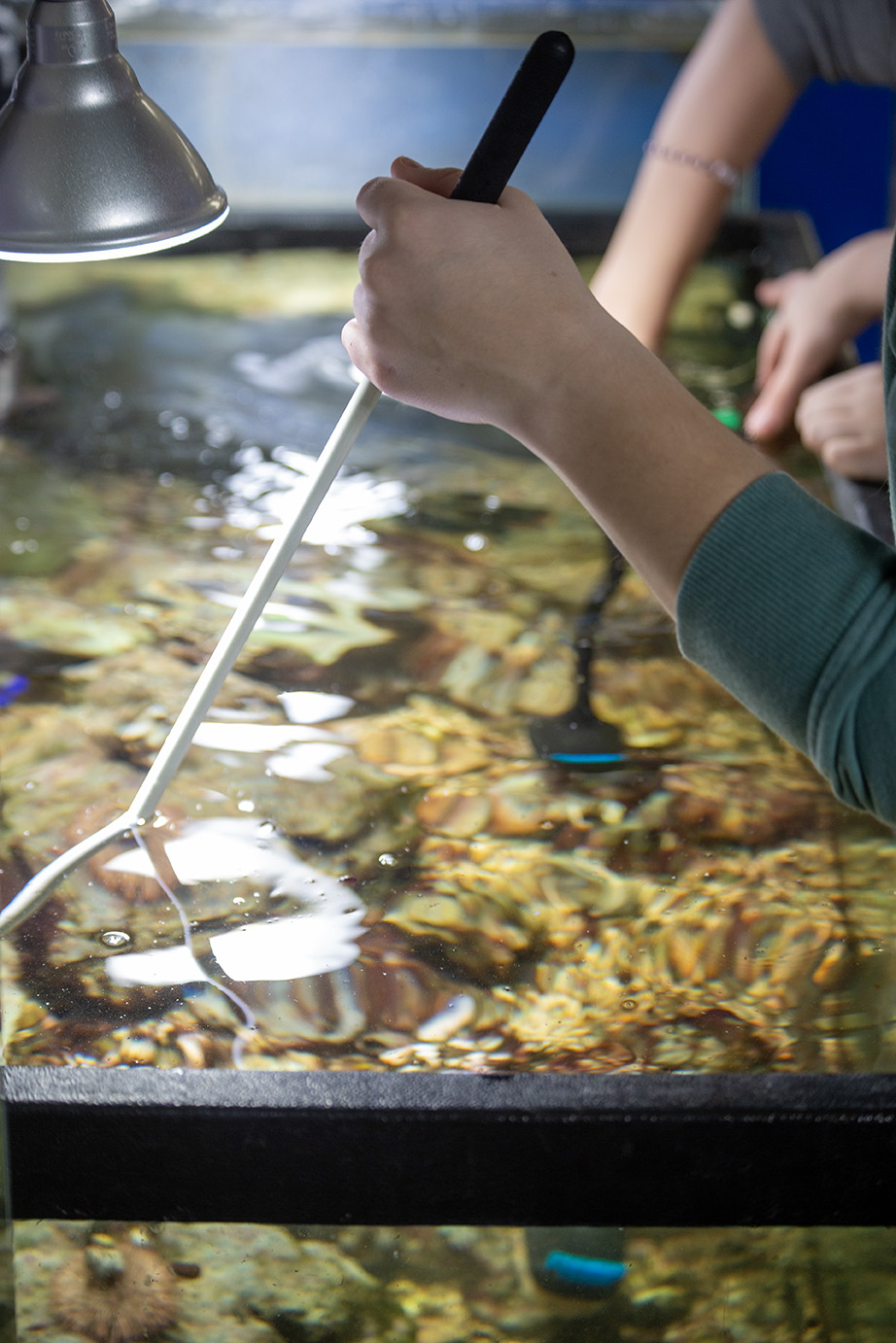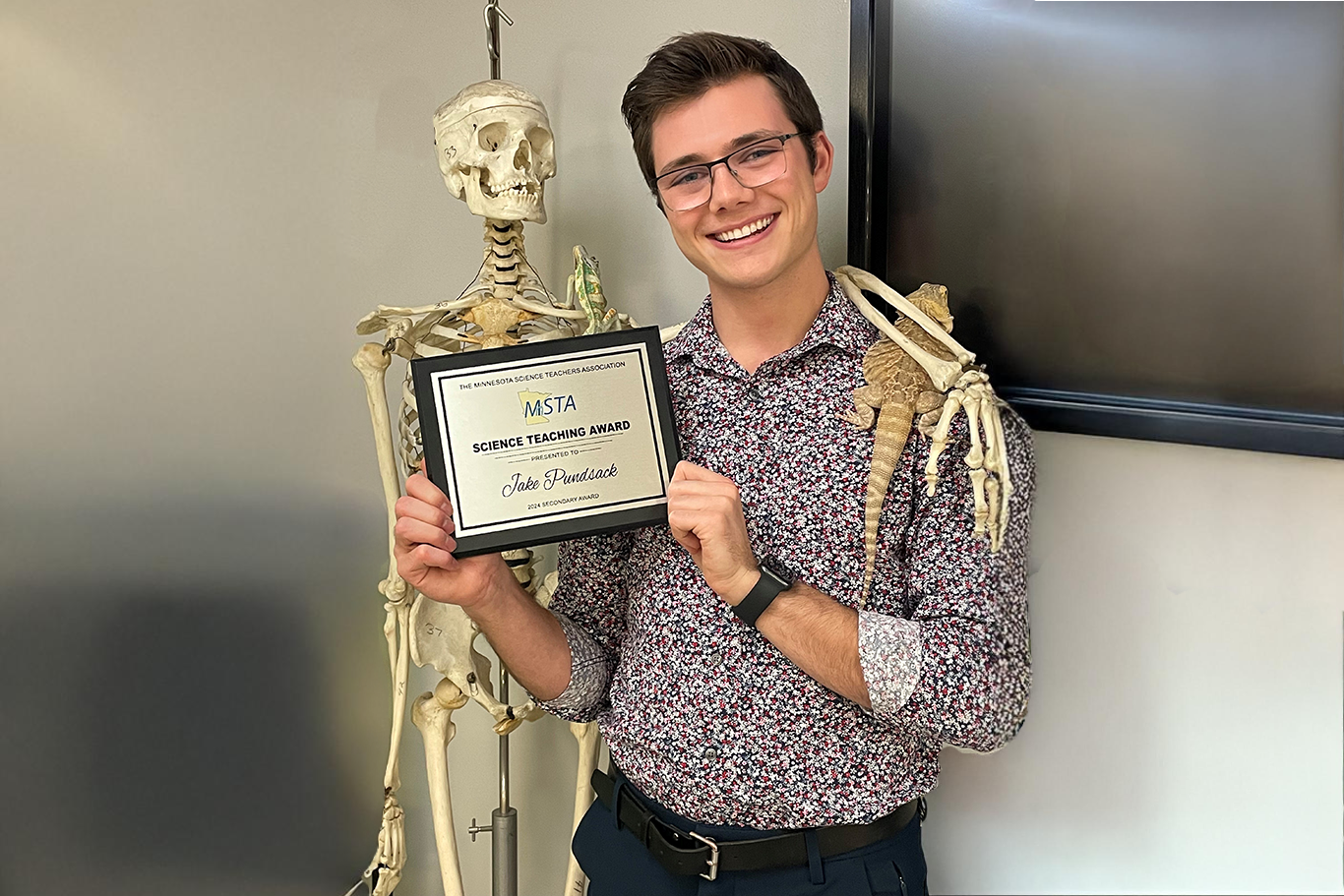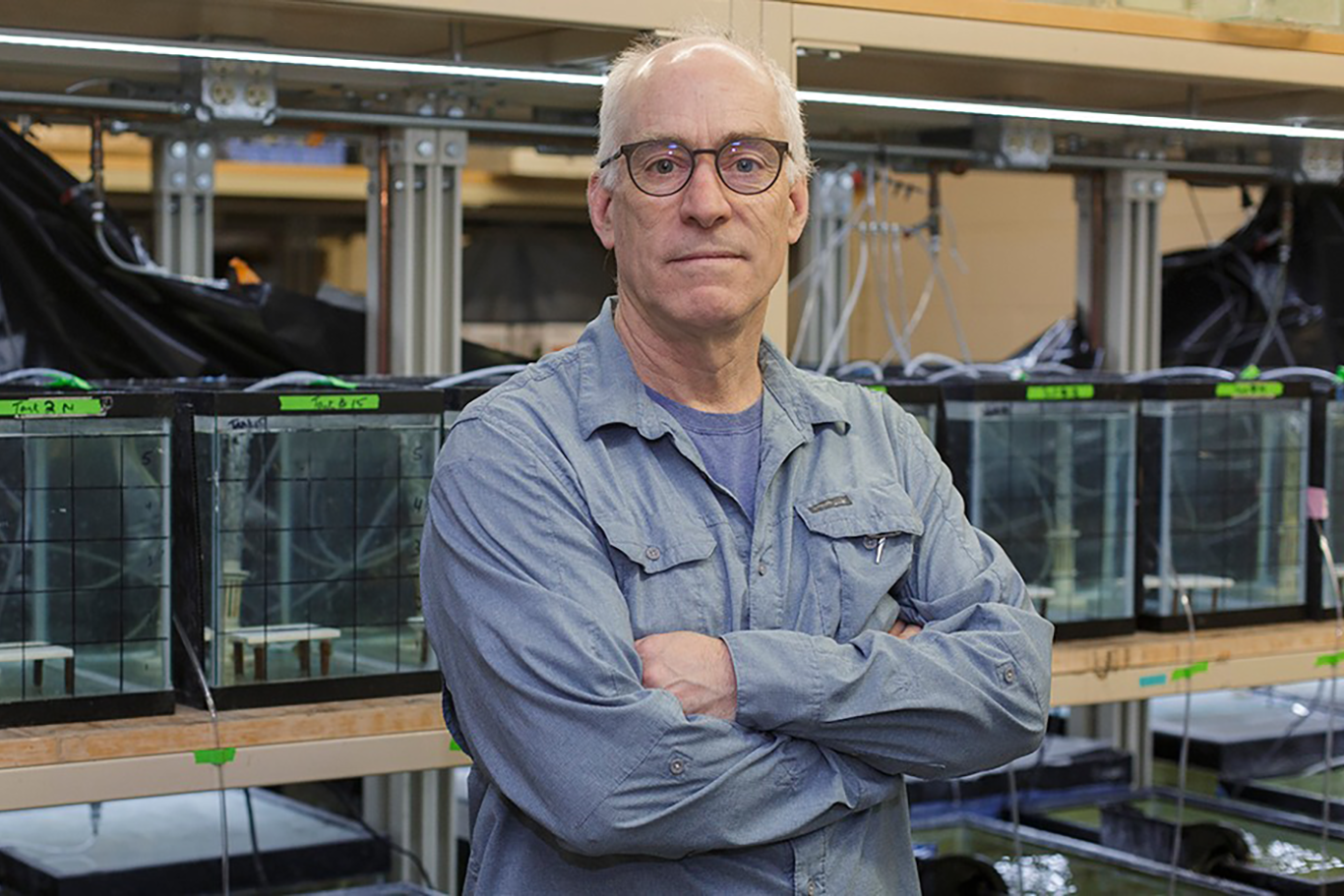Choosing MSUM: The Oceanarium’s Ripple Effect
Like a school of fish darting in and out of coral, dozens of student aquarists hustle around the MSUM Oceanarium. Armed with brushes and sprayers, they scrub tanks free of algae, polish the glass until it gleams, and carefully arrange seasonal decorations around the facility. The salty tang of seawater fills the air as students work together to prepare the facility for an upcoming public event. Excitement buzzes through the group as they transform the space into a pristine showcase of marine life.

This flurry of activity is just one example of the hands-on learning that happens daily in the MSUM Oceanarium, a facility that’s become a highlight of the university’s biology program. Housing an impressive array of marine organisms, it offers students the rare opportunity to study marine biology and aquarium management in the Midwest—a region far removed from any ocean.
The Oceanarium is central to MSUM’s Marine Aquarist Certificate program, which trains students in the care and management of aquatic organisms. The program includes three Oceanarium classes, each building on the next to give students a comprehensive understanding of marine ecosystems and aquarium operations. From water chemistry and tank maintenance to animal care and public education, the curriculum prepares students for careers in marine biology, aquarium science, and beyond.
Junior Paige Lueck, one of the students polishing glass and arranging tank decorations, transferred from another regional university to MSUM specifically for this program.
"I went on a study abroad trip to Thailand, and I got scuba certified. That was when I realized I really love the ocean and I wanted to pursue marine biology,” says Lueck. “Over the summer, I transferred to MSUM to come and study in the Oceanarium.”
Students in the Oceanarium classes hone a variety of skills. They monitor water quality, feed animals, and ensure the tanks replicate natural environments. Junior Kyra Eischens, a biology major with an emphasis in ecology and evolution, says her time in the Oceanarium has deepened her passion for marine life.
“I've created great bonds with classmates and some of the organisms,” she says. “We do so much in the Oceanarium—it's a lot of hands-on learning. We feed organisms, clean tanks, and learn how to maintain the Oceanarium as a whole."

Beyond their work behind the scenes, students also engage with the broader community. They lead tours for school groups, explaining the Oceanarium’s inhabitants and operations to curious visitors.
"I really enjoy the outreach part of the program," Lueck says. "I get to teach the visitors that come in about what we have here, and they get to look around and explore the Oceanarium too.”
The facility’s unique offerings attract students from far and wide. Dr. Brian Wisenden, Biosciences Professor at MSUM, recently asked an Oceanarium class how many had chosen MSUM specifically because of the Oceanarium. Eight hands shot up—a testament to the program’s impact. Junior Derrek Friesen, who transferred from M State, is among them.
“I enjoy helping out and planning events,” Friesen says. “I want to be a marine biologist, and I am even more certain now because of my time in the Oceanarium.”
Friesen is not alone in his aspirations – Junior Olivia Kosel has similar plans.
“It's such a unique opportunity in this region. I’m considering pursuing a master’s in Oceanography or Marine Biology after graduating, and I hope to work in an aquarium or conduct field research in marine environments,” says Kosel.
For past Oceanarium students, experience in the facility has led to additional opportunities after graduation. Savanna Hohenstein, a 2020 alumna, now works as a marine biologist in Florida. Alex Seigel, a 2021 graduate and former Oceanarium tour guide, recently earned his Masters in Conservation from the University of South Florida in marine biology. Kathryn Hanson, a 2023 graduate, became an Animal Care Specialist for the Kansas City Zoo & Aquarium shortly after graduation.
The MSUM Oceanarium brings marine science to life for students in a way that’s rare in the Midwest. The aquarist program has become something of a magnet for the region’s would-be marine biologists. Every task they undertake, from meticulously cleaning tanks to leading tours, shapes their future. These students don’t just study the ocean—they bring it to the heart of the Midwest, proving that passion for marine science knows no geographical bounds.
Biology Degree
This degree prepares students for a wide variety of careers in a biological sub-discipline such as human health, medicine, evolutionary biology, conservation biology, natural resource management, public health, and environmental health.
Learn more about Biology


